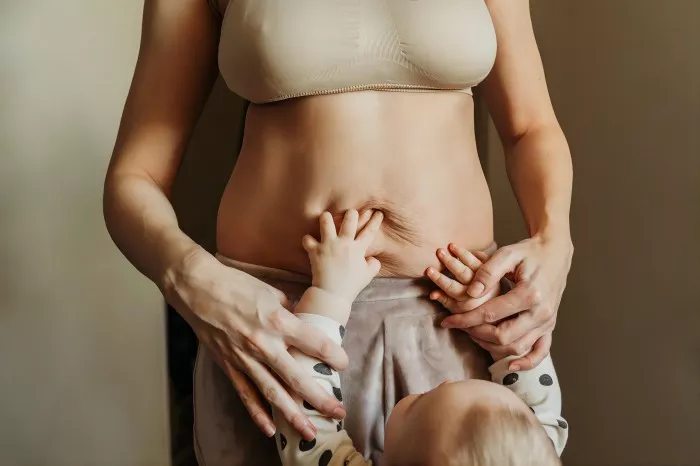The Challenge of Postpartum Weight Loss
The postpartum period is a time of immense joy and adjustment for new mothers, but it also comes with its own set of challenges, including the struggle to lose weight gained during pregnancy. Many women find that shedding those extra pounds after giving birth is more difficult than expected. In this exploration, we’ll delve into the various factors that contribute to the challenge of postpartum weight loss.
1. Hormonal Changes
One significant factor that complicates postpartum weight loss is the hormonal changes that occur during and after pregnancy. Hormones such as estrogen, progesterone, and cortisol fluctuate dramatically during pregnancy and childbirth, affecting metabolism, appetite regulation, and fat storage. These hormonal shifts can make it harder for the body to shed excess weight and may contribute to stubborn pockets of fat, particularly around the abdomen.
2. Sleep Deprivation
Sleep deprivation is a common experience for new mothers, as they adjust to the demands of caring for a newborn. Lack of sleep can disrupt hormonal balance, increase cravings for high-calorie foods, and impair decision-making abilities related to food choices and portion control. Additionally, fatigue can reduce motivation to engage in physical activity, further hindering weight loss efforts.
3. Increased Appetite and Cravings
Pregnancy and breastfeeding can significantly increase appetite and cravings for certain foods, particularly those high in carbohydrates and sugar. Hormonal changes, nutrient demands, and the energy requirements of breastfeeding can all contribute to heightened hunger levels. Managing cravings and making healthy food choices can be challenging, especially when faced with the demands of caring for a newborn and limited time for meal preparation.
4. Physical Recovery
The process of childbirth takes a toll on the body, and new mothers need adequate time to recover physically. Depending on the type of delivery, women may experience abdominal muscle separation (diastasis recti), pelvic floor weakness, or other postpartum complications that can affect mobility and exercise tolerance. It’s essential to prioritize rest and gentle physical activity during the early postpartum period before gradually increasing intensity as the body heals.
5. Time Constraints
Caring for a newborn is a full-time job, leaving little time and energy for self-care activities such as meal planning, exercise, and self-care. Many new mothers struggle to find the time to prioritize their own health and well-being amidst the demands of childcare, household chores, and other responsibilities. Finding creative ways to incorporate healthy habits into daily routines and enlisting support from partners, family members, or childcare providers can help alleviate time constraints.
6. Emotional Challenges
The postpartum period is often accompanied by a range of emotions, including joy, excitement, stress, and anxiety. Hormonal fluctuations, sleep deprivation, and the demands of caring for a newborn can contribute to mood swings, emotional eating, and stress-related weight gain. It’s important for new mothers to prioritize self-care, seek support from loved ones, and practice stress management techniques such as mindfulness, deep breathing, or seeking professional counseling if needed.
7. Breastfeeding Considerations
For women who choose to breastfeed, there are additional considerations when it comes to postpartum weight loss. While breastfeeding can help burn extra calories and promote weight loss, it also increases appetite and nutrient demands, making it essential to strike a balance between nourishing oneself and supporting milk production. Rapid weight loss or extreme calorie restriction can compromise milk supply and nutrient quality, so it’s crucial to prioritize adequate nutrition and hydration while breastfeeding.
Conclusion
Losing weight after having a baby can be a challenging journey, influenced by a variety of factors including hormonal changes, sleep deprivation, increased appetite and cravings, physical recovery, time constraints, emotional challenges, and breastfeeding considerations. It’s important for new mothers to approach postpartum weight loss with patience, self-compassion, and a focus on overall health and well-being. By prioritizing nutritious eating, gentle physical activity, adequate rest, stress management, and seeking support when needed, new mothers can navigate the challenges of postpartum weight loss and achieve their health and fitness goals in a safe and sustainable manner.
Related Topics:
Can we eat fish for weight loss? Low-Calorie, High-Protein Options


